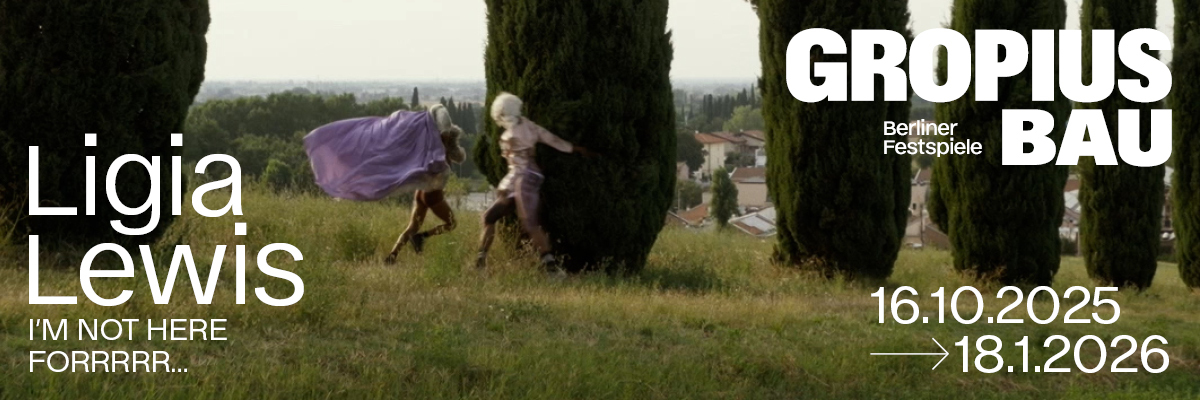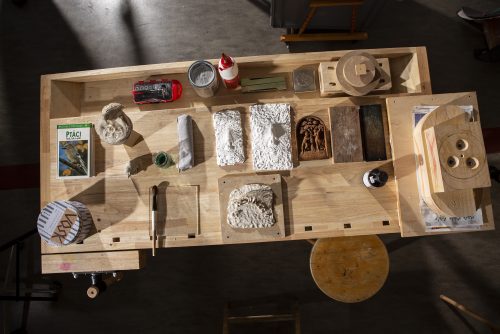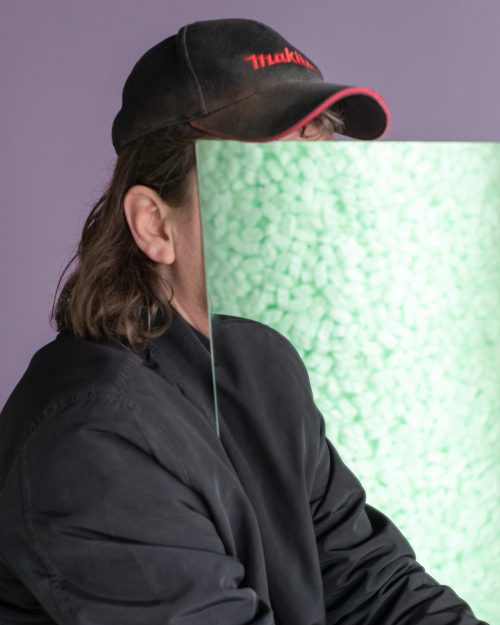
Constant Dullaart
Accepting the Job
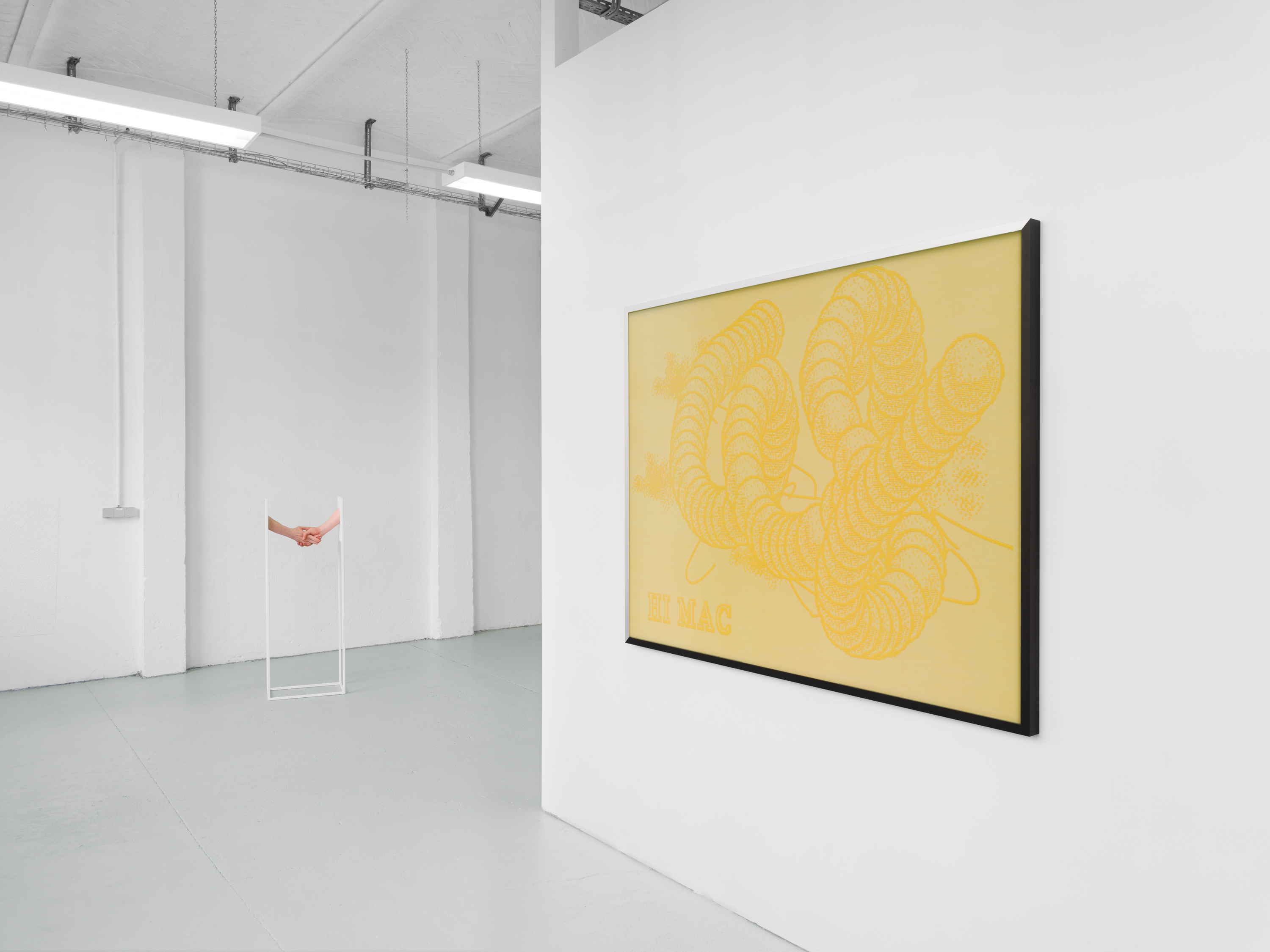
Exhibition view, Constant Dullaart, Accepting the Job, 2024
Advertisement
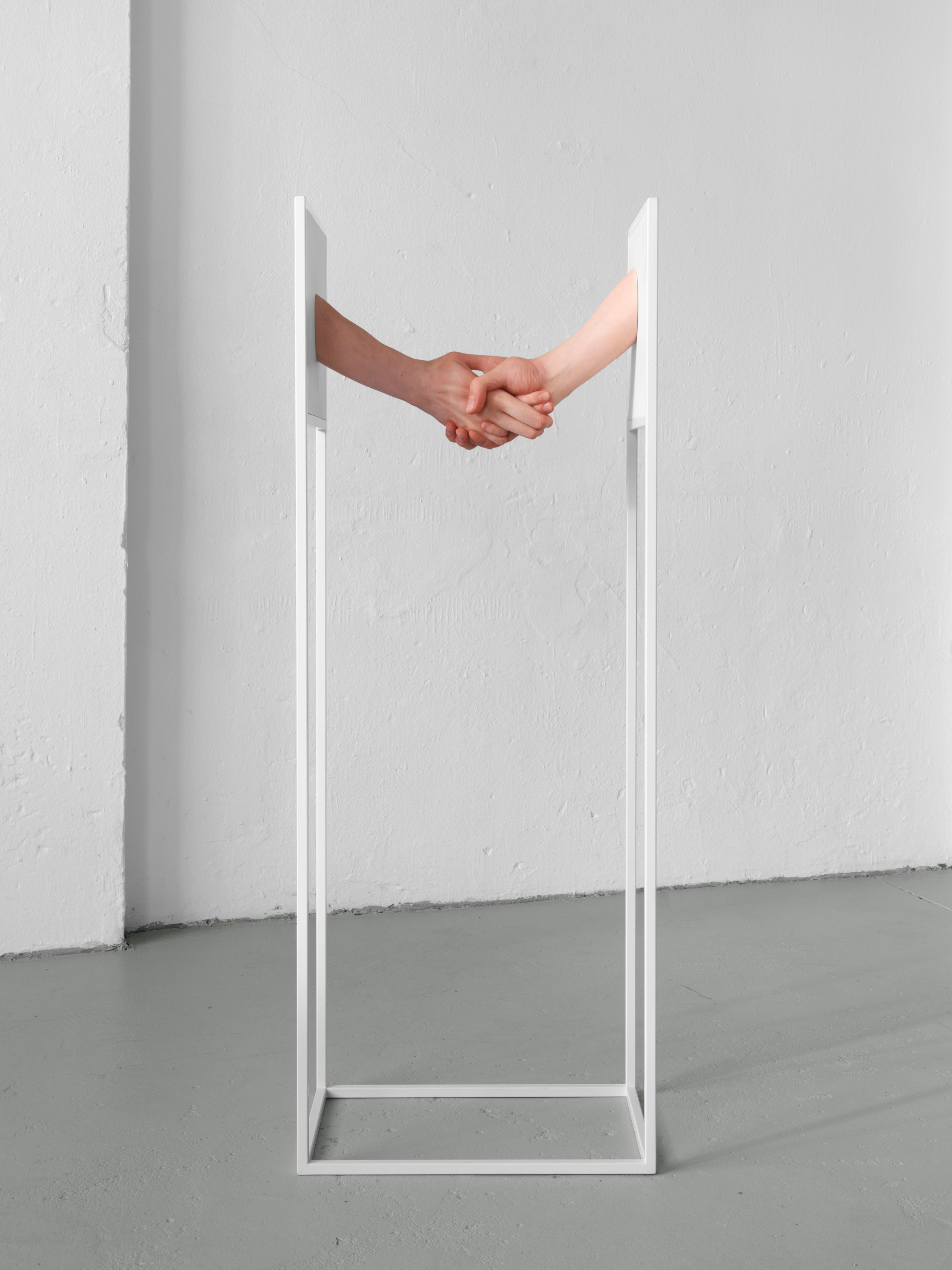
Constant Dullaart Accepting the Job, 2023 Steel, wood, silicone, resin, paint 130 x 48 x 30 cm

Constant Dullaart Accepting the Job (detail), 2023 Steel, wood, silicone, resin, paint 130 x 48 x 30 cm
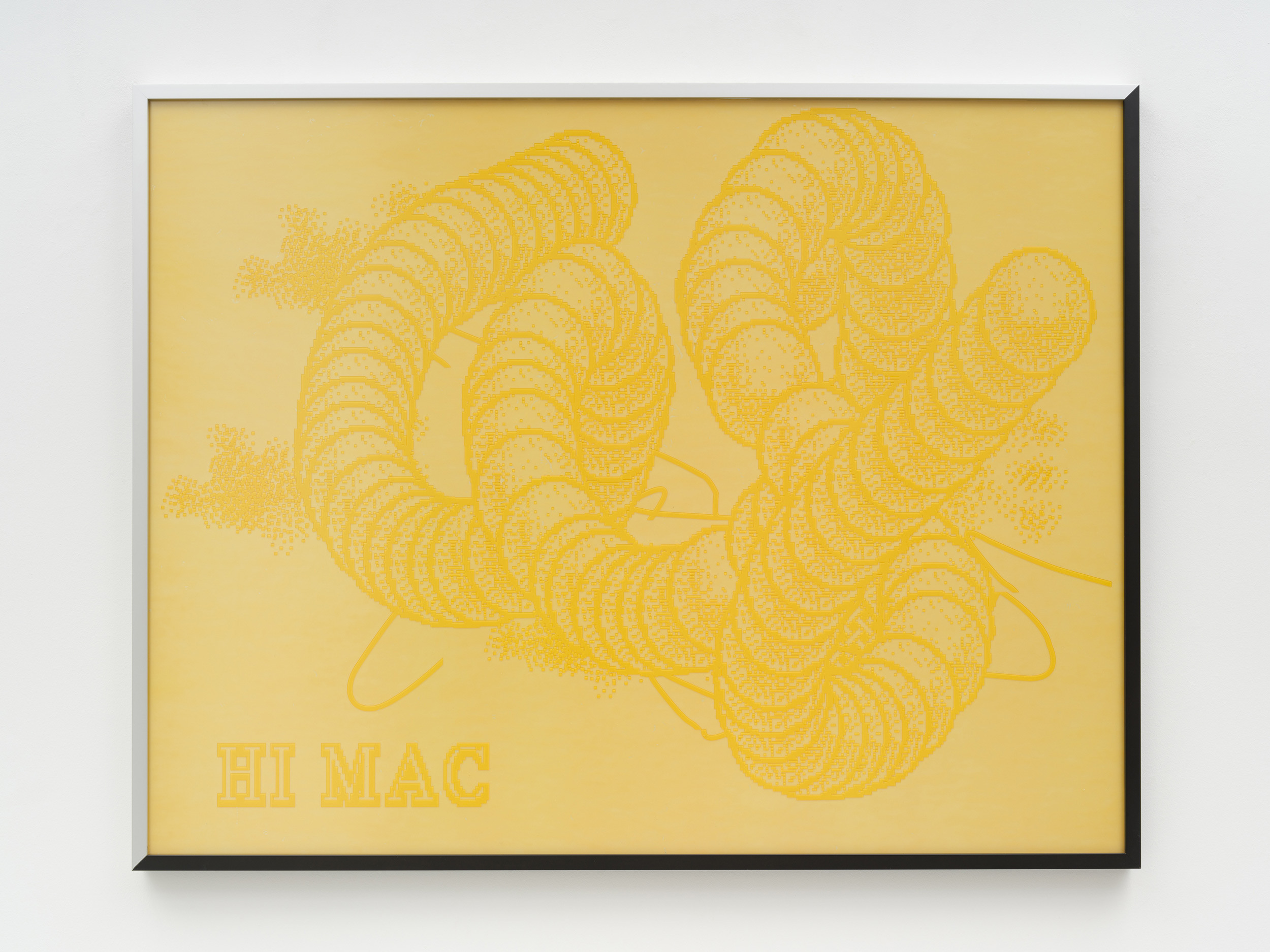
Constant Dullaart, HI MAC yellow, 2014, Photopolymer plate, 125,5 x 162 cm
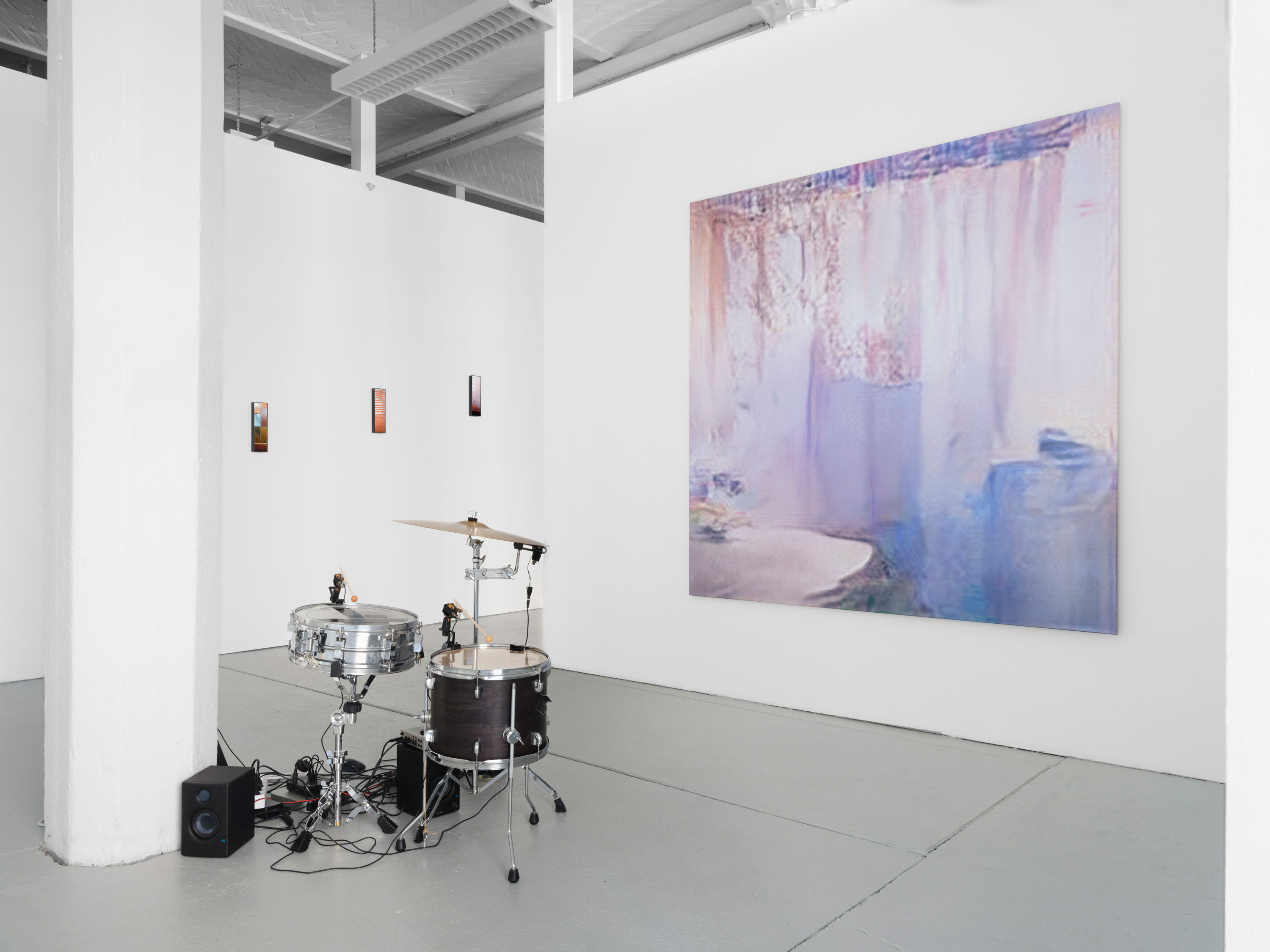
Exhibition view, Constant Dullaart, Accepting the Job, 2024
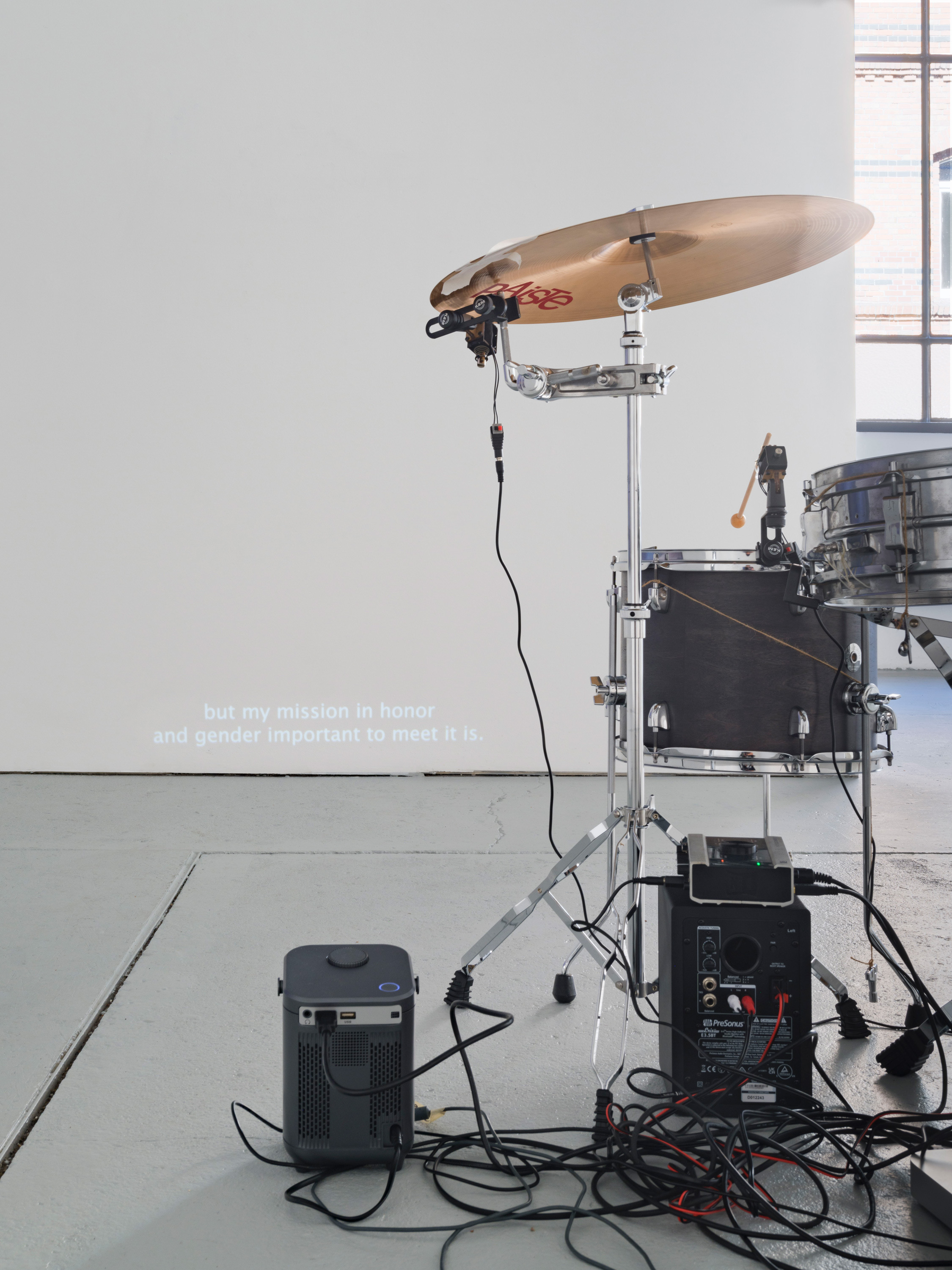
Constant Dullaart, Captains log (humanized), 2024, Performance Piece dimensions variable
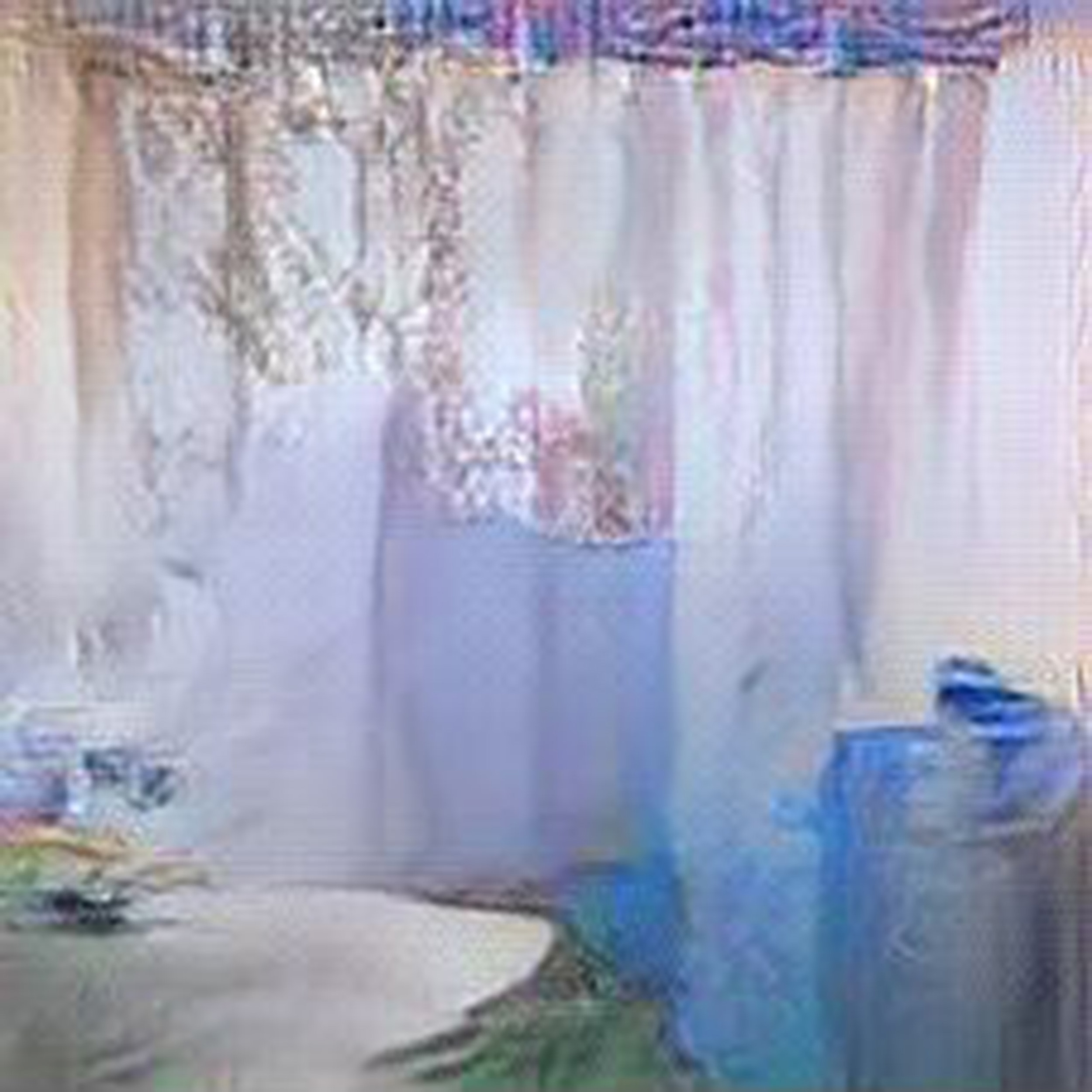
Constant Dullaart, Synthesised Image Net (Shower Curtain), 2017, Neural network synthesised images class; Acrylic and clear coat on canvas, 200 x 200 cm
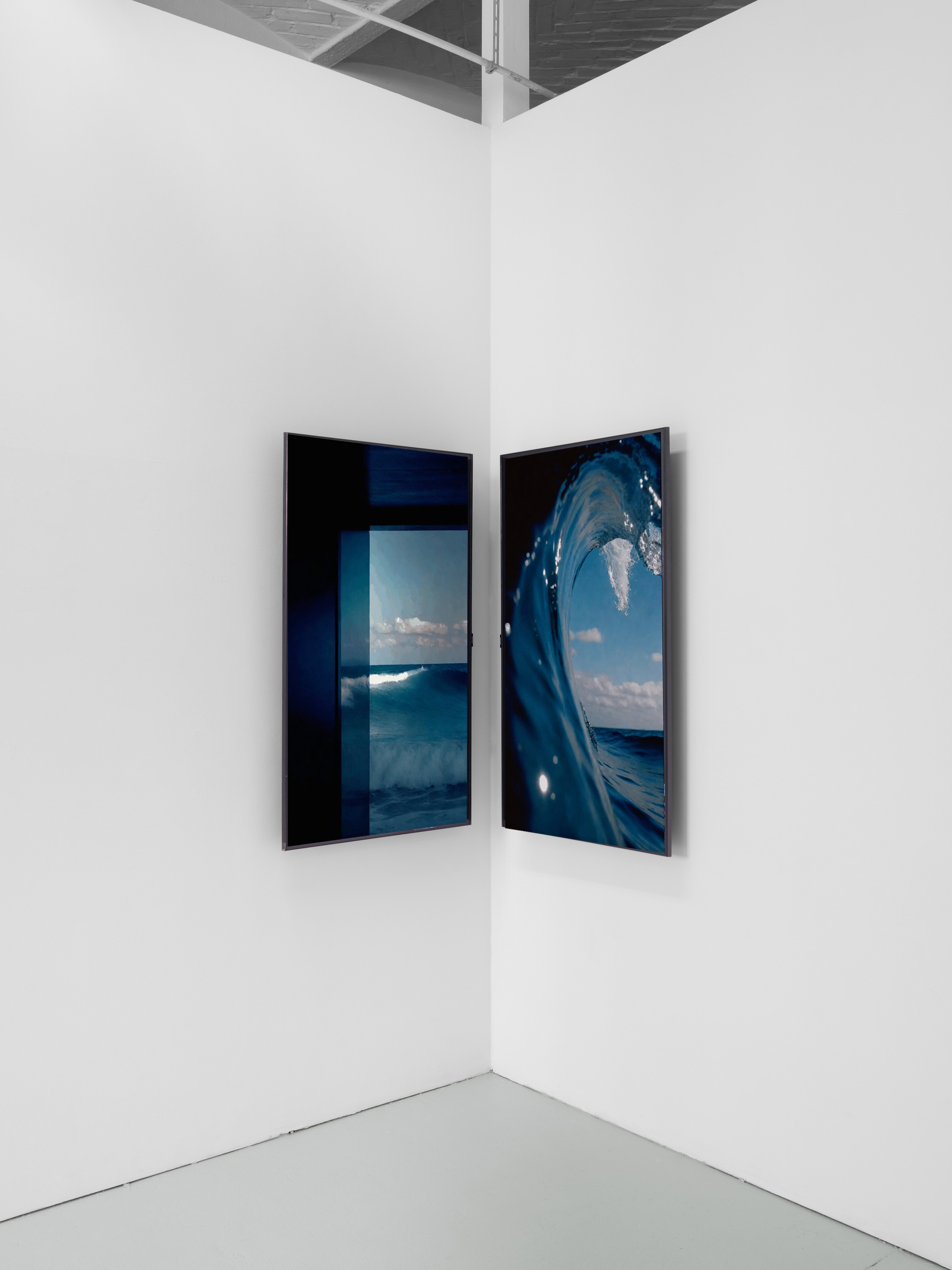
Constant Dullaart, Diffusion Swing, 2024 2 Videos, synchronised Loop contact us to view the video
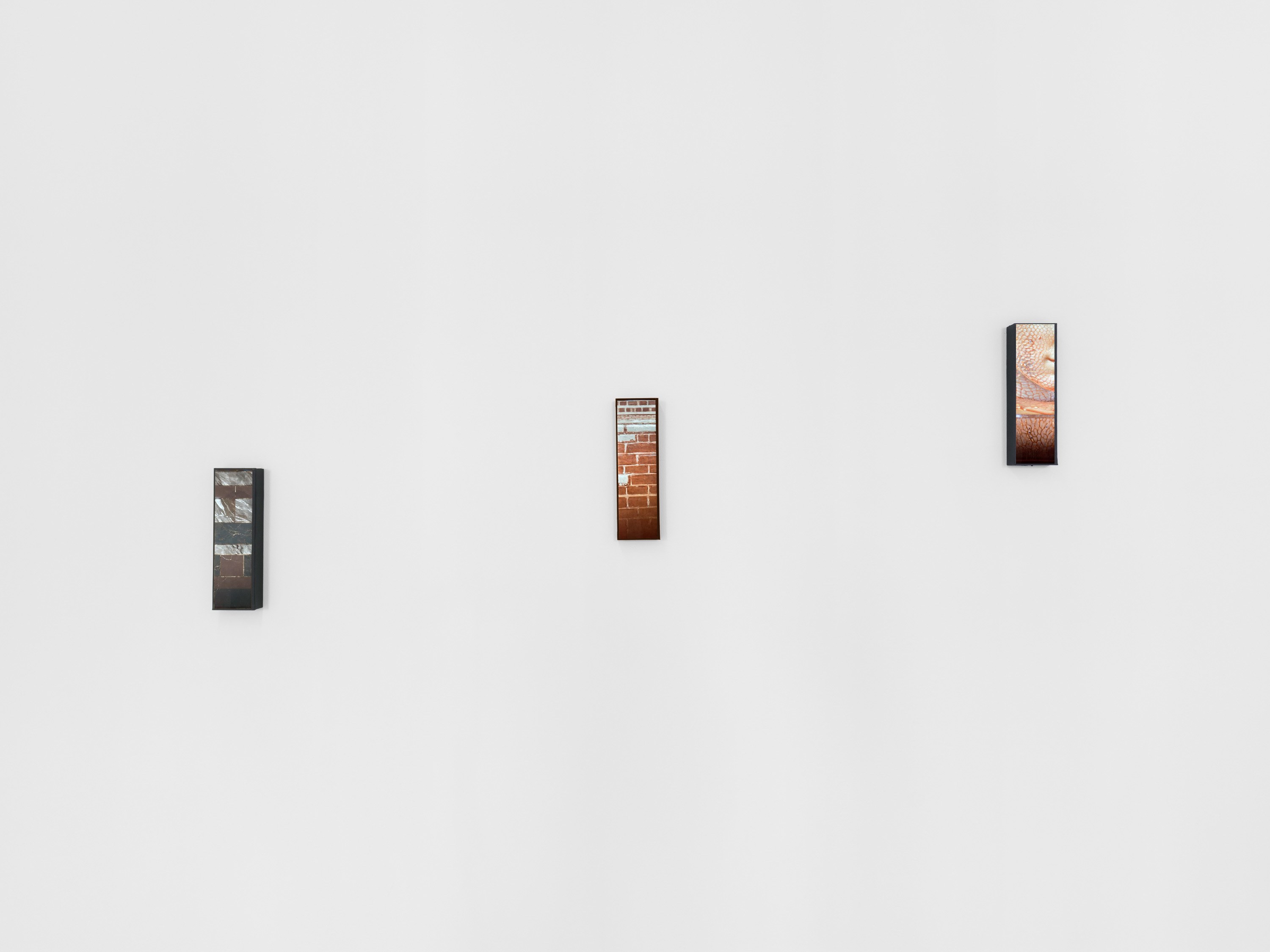
Exhibition view, Constant Dullaart, Accepting the Job, 2024
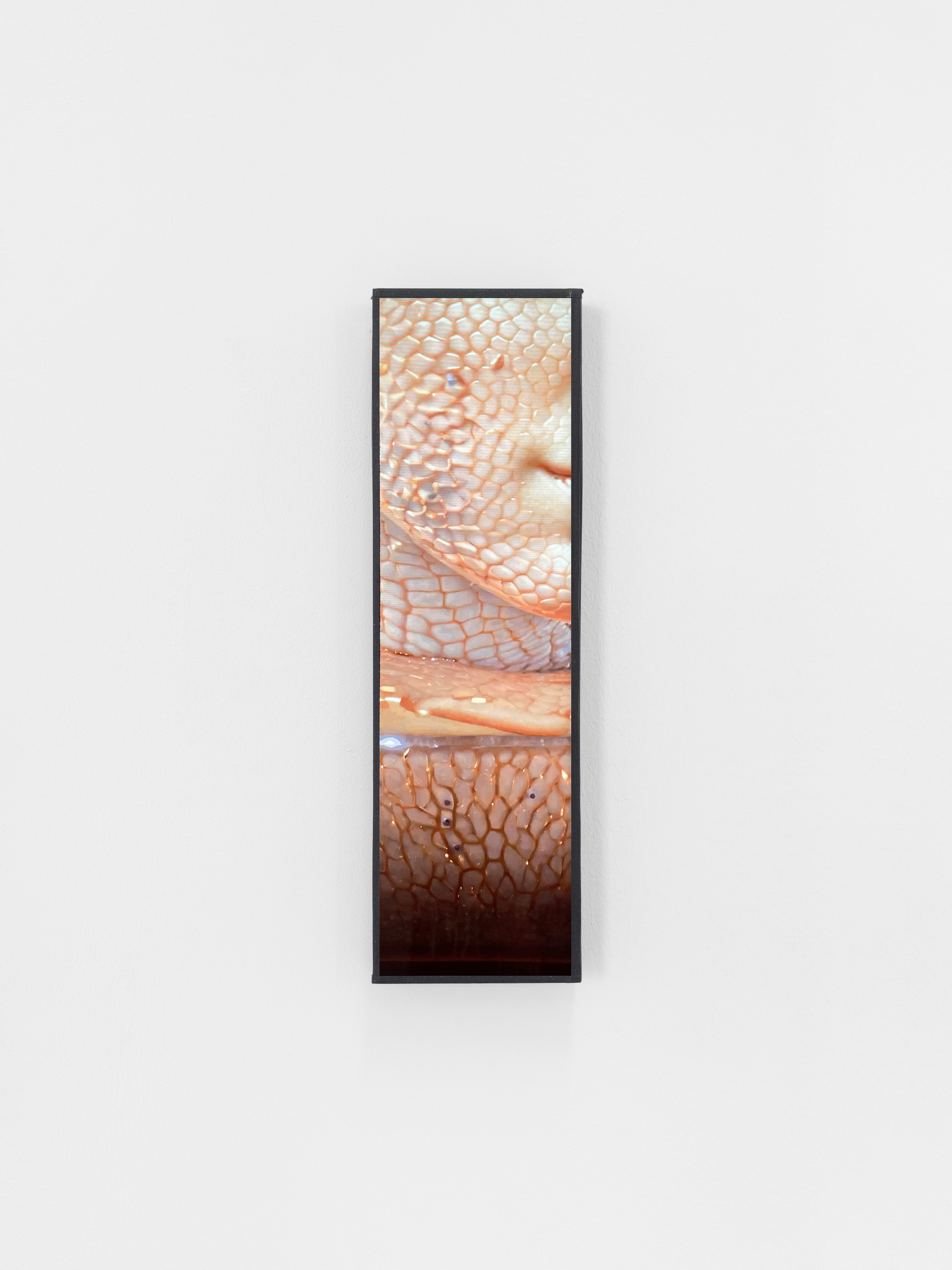
Constant Dullaart, Skin diffusion, 2024 Video, custom screen 31,5 x 9,5 x 3 cm, contact us to view the video
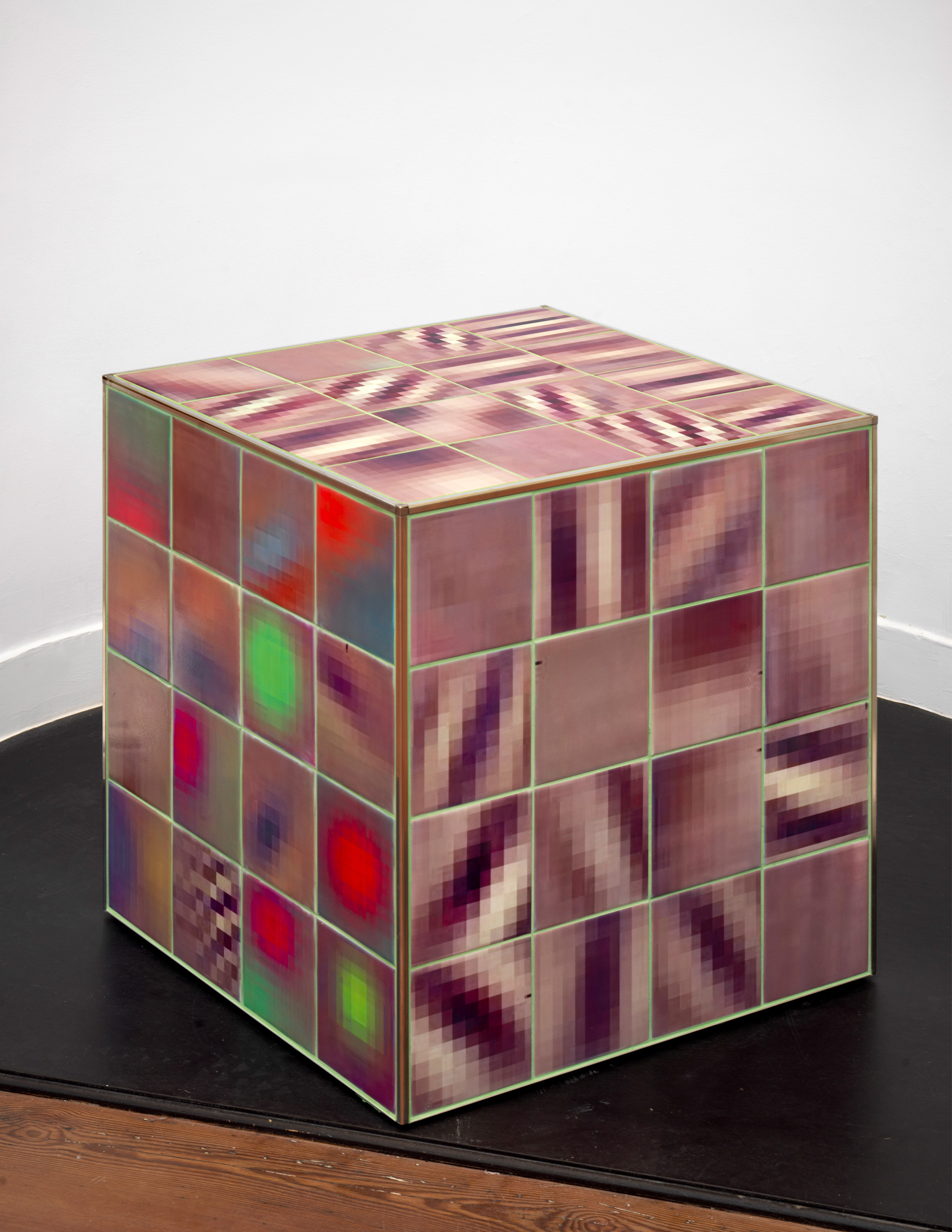
Constant Dullaart, Convnet plinth, 2019, Wood, ceramics, 64 x 64 x 64 cm
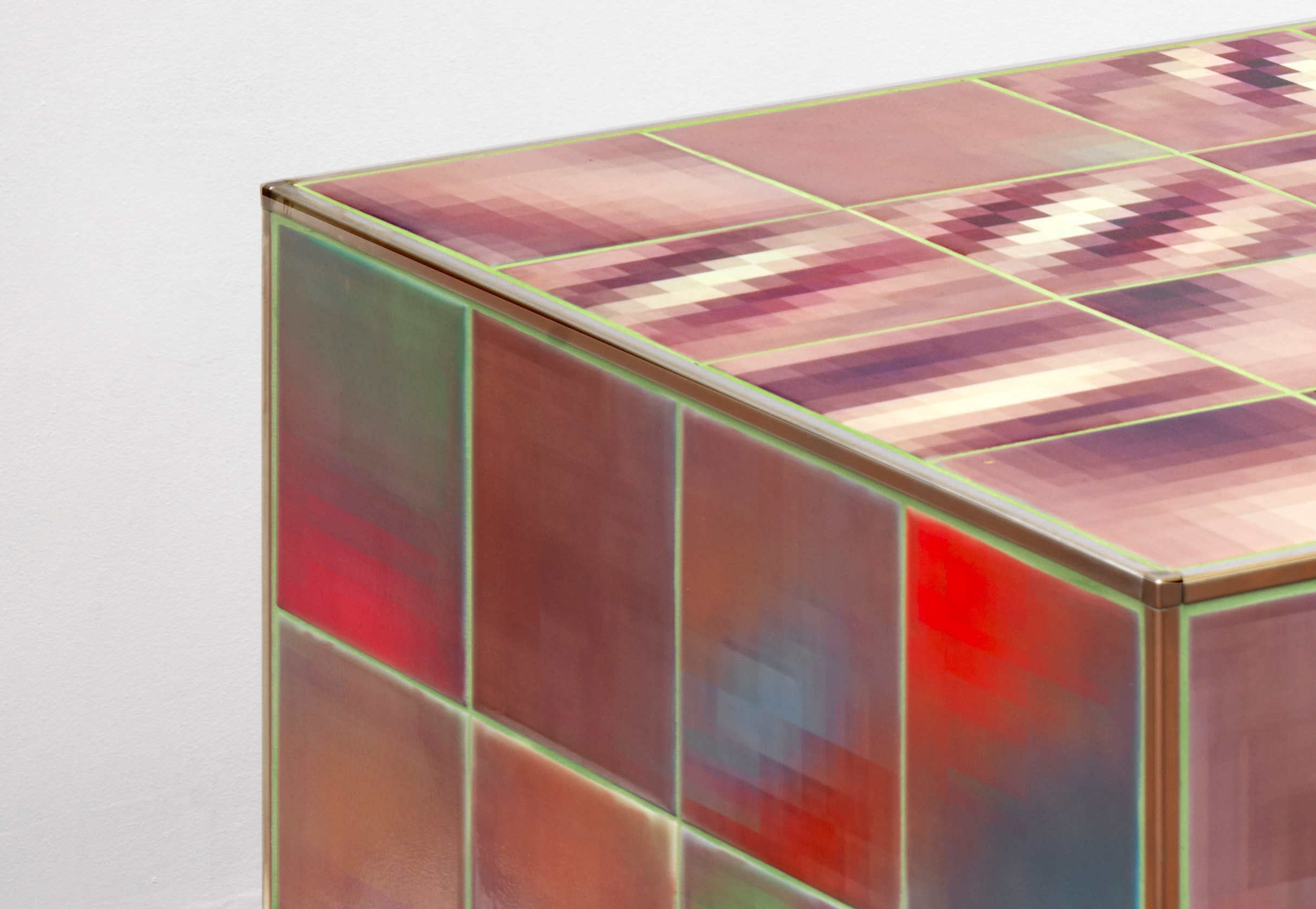
Constant Dullaart, Convnet plinth (detail), 2019, Wood, ceramics, 64 x 64 x 64 cm
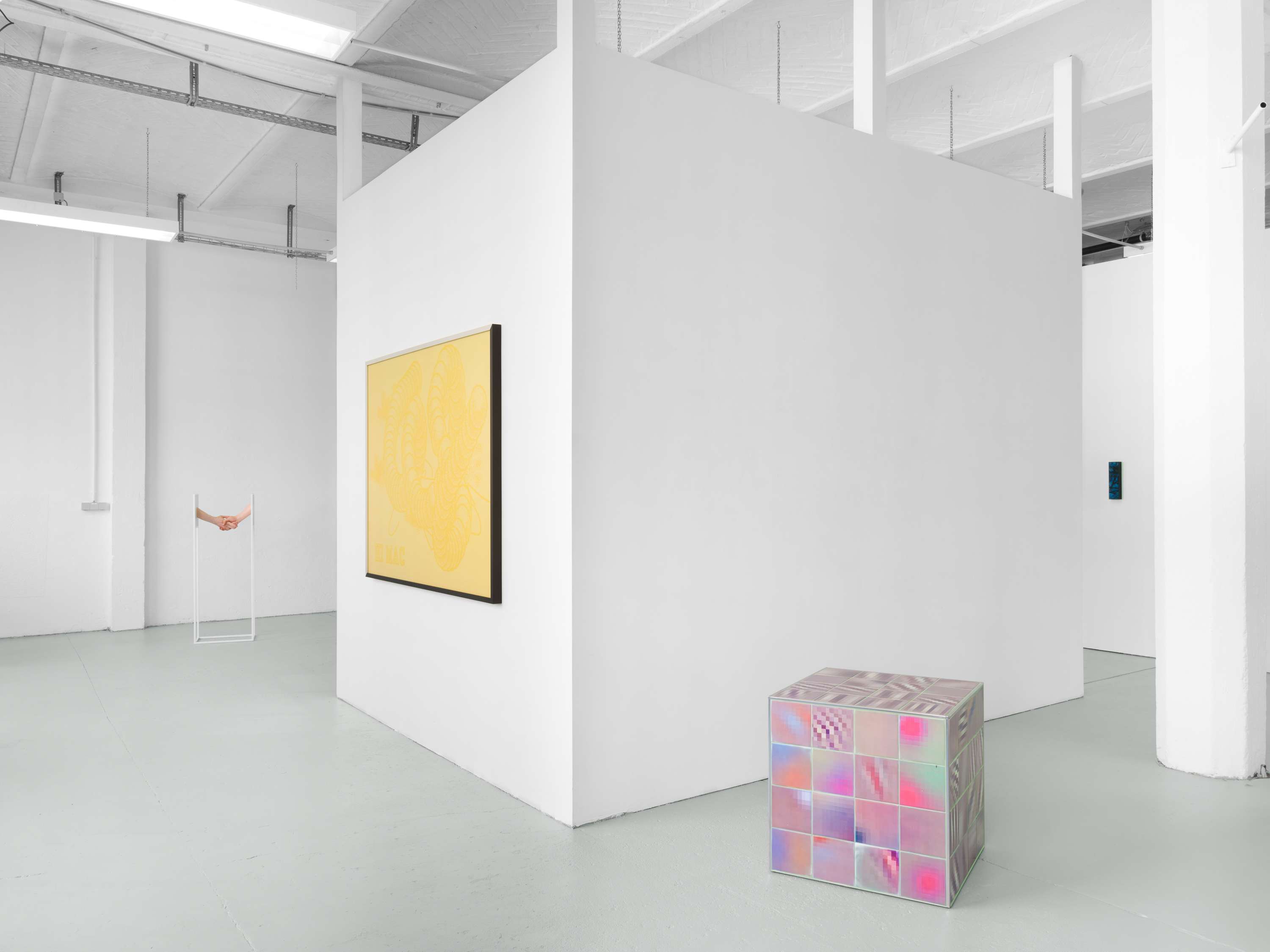
Exhibition view, Constant Dullaart, Accepting the Job, 2024
Constant Dullaart is a Dutch conceptual artist known for his critical explorations of the intersections of art, technology and digital culture. His works often reflect the complexity of the digital world and question the concepts of originality, authorship and authenticity in the age of digital reproducibility. Through a playful approach and creative interventions, Dullaart challenges the viewer to question the boundaries between the virtual and the real.
‚Accepting the Job‘ is the first major solo show by Constant Dullaart at OFFICE IMPART.
The show deals with evolution of failure in technology and it includes selected works from the last ten years until today.
The central installation and performance Captains Log (humanised) consists of a set of drums and the voice of Captain Picard. Translated into gibberish is an early manifesto by Constant Dullaart from 2013 about the importance of growing digital surveillance, appropriation of data and the ubiquity of open networks.
‚Hi MAC‘ is one of the first images create by web developer Bill Atkinson for a presentation for Apple. It therefore stands as a testimony to the influence of technology on digital imagery in the 20th century.
The marking moment can be found on video here.
snowww crshahs
This stack of covers shows various AI interpretations of Neil Stephenson‘s 1992 novel Snow Crash, in which Stevenson described a virtual world in which humans can interact, do business and move around, much like in real life. The term „metaverse“ first appeared in Neal Stephenson‘s science fiction novel „Snow Crash“, which was published in 1992. Since then, the term has evolved and is now often used to describe virtual worlds created by technology in which people can interact.
Accepting the Job
The sculpture is a lifelike representation of the current AI‘s inability to understand hands. A monument to the mistakes of AIs before they are eradicated.
Hyper-realistic in a way that becomes magical and floats on the altar of inconsistency.
Convnet Cube
The first filter set of a convolutional neural network used in image recognition by artificial intelligence. The first basic filter set consists of all the primary visual components of a possible 2D image, thus summarising every possible image in the symbolic form of the cube as a reference to modernism.
ConvNet Series (Shower curtain)
As part of the current machine learning revolution, convolutional networks (ConvNets) can now recognise objects in photographic images. This may seem like a trivial addition to existing computer and online services, but it is a crucial step in the way humans can interact with representations and images. The improved ability to distinguish a cow from a horse is rapidly evolving into an ability to recognise specific people and their moods and interpret their behaviour, and in some ways these synthetic images based on photographic representations show a mechanised version of the collective consciousness of Western societies. This mechanical representation of a concept challenges our understanding of representation in general, especially when placed in the time frame of the rapid development of these convolutional networks. The sheer amount of money, training, talent and computing power that Facebook, Google, OpenAl and others are pouring into these developments suggests nothing less than a future in which these techniques are utilised and rapidly developed beyond their current quaint, even beautifully naïve level.
The brand new video works ‚Diffusion Swing‘ and ‚Skin, Brick and Marble Diffusion‘ are based on generated videos with the Stable Diffusion text-to-video programme.
Constant Dullaart thus refers to the current aesthetics and visual language of open source AI. The interactive sculpture on Common.Garden invites visitors to join the exhibition virtually.

